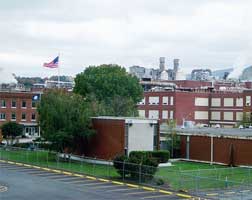Green tech: Celanese to supply VAM to China’s Wanwei; Inovyn consortium in CO2-methanol plant in Antwerp

US speciality materials firm Celanese Corporation has recently signed a long-term commercial agreement with Anhui Wanwei Group Co Ltd (Wanwei), based in Chaohu, China, to supply Wanwei with Celanese’s ethylene-based vinyl acetate monomer (VAM) to support approximately 50% of the company’s captive product needs in the manufacture of chemicals, fibres, and new material in Anhui Province, China.
Under the terms of the agreement, Celanese will supply Wanwei with its ethylene-based VAM, which has been recognised by the China Petroleum and Chemical Industry Federation (CPCIF) as an environmentally sustainable product.
Celanese is the largest global producer of ethylene-based VAM and is advancing the use of green technology in the production of polymer emulsions of various types. VAM is the key raw material used in the production of polyvinyl acetate (PVAc), vinyl acetate ethylene (VAE) emulsions and polyvinyl alcohol (PVOH), a precursor to PvB films. VAM is also used to make ethylene vinyl alcohol (EVOH) resins and ethylene vinyl acetate (EVA) copolymers. In addition, VAM is an intermediate used to produce paints and coatings, adhesives, textile finishes, water-soluble films and fibres, and laminated safety glass. VAM can be polymerised in mass, solution, suspension or emulsion.
Financial details of the agreement are not being disclosed at this time. Celanese expects to supply Wanwei with VAM from its world-scale chemical industrial facility located in Nanjing, China.
In other news, Inovyn, formed in 2015 as part of chemical firm Ineos, has joined a seven-strong consortium of industrial and business partners to contribute to a joint feasibility study for the production of methanol from captured carbon dioxide and sustainably generated hydrogen. It is expected that a 8,000-tonne/year industrial-scale demonstration plant will be built at Inovyn’s chemical manufacturing complex at Lillo. This would be the first of its kind for Belgium, with the methanol produced being used by chemical companies in the port of Antwerp cluster.
In addition to Inovyn, other consortium members include Engie, Oiltanking, Indaver, Fluxys, the Flemish Environmental Holding Company (Vlaamse Milieu Holding) and Port of Antwerp.

The carbon dioxide is captured by means of Carbon Capture and Utilisation, through which CO2 emissions are partially recovered and then combined with hydrogen generated from renewable energy. For each tonne of methanol produced at least one tonne of CO2 emissions would be avoided.
Methanol is an essential multi-purpose raw material for the chemical industry, with many applications in wider industry. Currently, methanol is produced using fossil based raw materials, which emits carbon dioxide from the process.
Comments Geir Tuft, CEO Inovyn: “This is a very exciting project and an excellent fit with our sustainability strategy, which includes pursuing options for alternative energy and the sustainable, lower carbon production of chemicals. Specifically, Inovyn will contribute its expertise in hydrogen production and electrolysis to the project, and has identified a suitable location for the proposed demonstration plant at our Lillo Site.”
Future development could see increased volumes of sustainable methanol produced for wider industry use, including as a sustainable fuel for marine and road transport.
(PRA)
Subscribe to Get the Latest Updates from PRA Please click here
©2020 Plastics and Rubber Asia. All rights reserved.

©2020 Plastics and Rubber Asia. All rights reserved.
Home Terms & Conditions Privacy Policy Webmail Site Map About Us



















